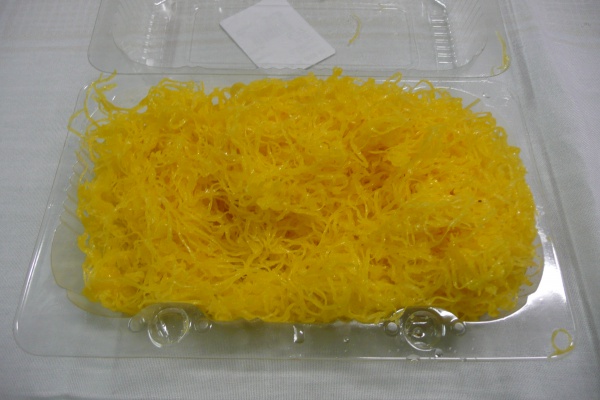Facts About Fios de ovos
Angel hair, or "Fios de Ovos" in Portuguese, is a delightful sweet treat made from eggs spun into thin strands and then cooked in sugar syrup. This delicacy is a beloved staple in Portuguese and Brazilian cuisine, enjoyed both as a dessert and a side dish. It also holds a special place in the culinary traditions of Spain (where it’s called "Huevo Hilado"), Japan ("Keiran Somen"), Cambodia ("Vawee"), Malaysia ("Jala Mas"), Thailand ("Foi Thong"), and the North Malabar region of Kerala, India, where it is known as "Muttamala."
The origins of Fios de Ovos date back to the 14th or 15th centuries, credited to Portuguese nuns who, having a surplus of egg yolks left over from using egg whites for laundry, began creating various egg-based sweets. The recipe likely traveled to Japan and Thailand with Portuguese explorers between the 16th and 18th centuries.
In Thailand, Fios de Ovos, known as "Foi Thong" carries auspicious meanings, symbolizing long life and eternal love. The dessert was introduced to Thailand by Maria Guyomar de Pinha, celebrated as the Queen of Thai desserts. In Japan, the dessert, called "Keiran Somen" was introduced 342 years ago through the Nanban trade. The renowned Matsuyariemon restaurant has been making Keiran Somen for 13 generations.
In Portugal and Brazil, Fios de Ovos is often used in fillings, decorations, and as accompaniments to various sweet dishes. In Brazil, it also makes an appearance in savory dishes, such as Christmas turkey. In Japan, Fios de Ovos is crafted into dessert rolls known as "keiran sōmen."
This versatile and historic sweet continues to bring joy and flavor to tables around the world, bridging cultures with its delicate, sugary strands.

 Paraguay
Paraguay